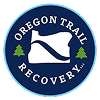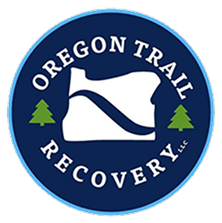Inpatient Rehab Oregon for 24/7 Support and Healing

Key Takeaways
- Decision Framework: Use a structured scoring system (1-10) to evaluate clinical quality, accessibility, specialized programming, and affordability when choosing inpatient rehab Oregon facilities
- Timeline Planning: Expect 7-14 days for routine admissions, 30-90 days for residential treatment, and 6-12 months for complete transition planning including aftercare
- Cost Preparation: Budget for program costs, insurance deductibles, travel expenses, and ongoing aftercare—request itemized quotes and verify coverage details before admission
- Crisis Pathway: For urgent situations, prioritize immediate medical stabilization and same-day placement over preferred location or program type
- Long-term Success: Engage with alumni networks, maintain structured aftercare, and build practical life skills for sustainable recovery beyond residential treatment
Disclaimer
Oregon Trail Recovery specializes in addiction recovery and trauma-informed care but is not a licensed mental health treatment provider. All services are designed to support substance use recovery and emotional well-being, not to provide psychiatric or clinical mental health treatment.
The Need for Inpatient Rehab Oregon
Finding the right help for addiction can feel overwhelming. You're not alone in this struggle. Oregon faces serious challenges with substance use, ranking among the highest states for drug use nationwide.1
But there's hope through comprehensive inpatient rehab Oregon programs that provide round-the-clock support.
Inpatient rehab Oregon offers the highest level of care for people battling addiction. These programs provide 24/7 medical supervision in a safe, structured environment. When you're ready to take the first step toward recovery, understanding your options can make all the difference.
Inpatient Rehab Oregon: What Is Inpatient Care?
Inpatient care means living at a treatment facility while getting help for addiction. This type of residential treatment provides constant medical supervision and support. You stay at the facility for weeks or months, depending on your needs.
Unlike outpatient programs where you go home each day, inpatient rehab Oregon keeps you in a controlled environment. This removes you from triggers and temptations in your daily life. Medical staff monitor your health around the clock during detox and early recovery.
Residential treatment facilities offer more than just a place to stay. They provide structured daily schedules filled with therapy, education, and healing activities. Most programs include individual counseling, group therapy, and medical care all in one location.
The Ultimate Goal of Inpatient Rehab Oregon
The goal is simple: to give you the best chance at lasting recovery. By removing outside distractions and stressors, you can focus entirely on getting better. This intensive approach works especially well for people with severe addictions or multiple failed attempts at sobriety.

When Is Inpatient Rehab Oregon Needed?
Inpatient rehab Oregon becomes necessary when addiction severely impacts your daily life and safety.
Several warning signs indicate you might need this level of care. These include failed attempts at quitting, dangerous withdrawal symptoms, or using drugs despite serious consequences.
Medical professionals recommend inpatient care for people who:
- Experience severe withdrawal symptoms that could be dangerous
- Have tried outpatient treatment without success
- Use multiple substances at the same time
- Have mental health issues alongside addiction
- Lack a stable, supportive home environment
- Face life-threatening health complications from drug use
Oregon Substance Use Statistics
Oregon ranks first in the nation for methamphetamine and prescription opioid use. This means many residents need intensive help to overcome these powerful addictions. The state's substance use disorder rate is 21.85%, much higher than the national average.2
Over 1,800 people died from drug overdoses in Oregon during 2023.3
Nearly 1,400 of these deaths involved opioids. These numbers show why intensive 24/7 care is often necessary to save lives and promote lasting recovery.
Inpatient Rehab Oregon vs. Outpatient Treatment
Inpatient and outpatient programs differ mainly in where you live during treatment. Understanding these differences helps you choose the right level of care for your situation.
Inpatient Rehab Oregon
Inpatient rehab Oregon provides:
- Facility living
- 24/7 medical care
- Treatment for severe addiction, multiple substances, and medical complications
Outpatient Programs
Outpatient programs provide:
- Home living
- Scheduled appointments
- Treatment for mild to moderate addiction and a strong support system
Inpatient rehab Oregon provides the most intensive level of care. You receive constant medical supervision, structured daily activities, and immediate help during crises. This environment eliminates access to drugs and alcohol completely.
Outpatient treatment allows you to maintain work, school, or family responsibilities. However, you return to the same environment where your addiction developed. This can make recovery more challenging without proper support systems.
Treatment Length
Residential treatment typically lasts 30 to 90 days, though some programs extend longer. The length depends on your specific needs, the substances involved, and your progress in recovery. Longer stays often lead to better long-term outcomes.
The choice between inpatient and outpatient care depends on several factors. These include the severity of your addiction, your living situation, work obligations, and previous treatment history. A medical professional can help determine which option gives you the best chance of success.
Inpatient Rehab Oregon: Inpatient Care Through PCTD
Pacific Crest Trail Detox, or PCTD, provides the medical detoxification component of inpatient rehab Oregon programs. This partnership ensures you receive safe, supervised withdrawal management before continuing your recovery journey.
Detox is often the first step in addiction recovery. Your body needs time to clear drugs or alcohol from your system. This process can be uncomfortable and sometimes dangerous without medical supervision. PCTD specializes in making this transition as safe and comfortable as possible.
The detox process typically includes:
- 24/7 medical monitoring by experienced staff
- Medication to reduce withdrawal symptoms
- Nutritional support to help your body heal
- Emotional support during difficult moments
- Preparation for the next phase of treatment
PCTD’s Partnership with Oregon Trail Recovery
PCTD works closely with Oregon Trail Recovery (OTR) to create a seamless transition from detox to ongoing treatment. This partnership eliminates gaps in care that could lead to relapse. You move directly from medical stabilization to therapeutic programming without interruption.
Medical detox usually lasts 3 to 10 days, depending on the substances involved. Alcohol and benzodiazepine withdrawal can be life-threatening without proper medical care. Opioid withdrawal, while uncomfortable, is generally safer but still benefits from medical support.
Inpatient Rehab Oregon: Continuum of Care Through OTR
Oregon Trail Recovery provides a complete continuum of care that bridges the gap between detox and independent living. This comprehensive approach addresses every stage of the recovery process through connected rehab programs.
After completing detox at PCTD, clients transition to Oregon Trail Recovery's residential programming. This 3-6 month program combines multiple levels of care in a supportive environment. The program includes sober living homes with live-in house managers who provide guidance and support.
The inpatient rehab Oregon continuum includes several levels of care:
- Partial Hospitalization Program (PHP): Intensive daily treatment while living in supervised housing
- Intensive Outpatient Program (IOP): Structured therapy sessions with increased independence
- Outpatient Program (OP): Continued support while transitioning to independent living
Our Philosophy
Oregon Trail Recovery's philosophy centers on being "the last treatment experience" for clients. This means providing comprehensive care that addresses not just addiction, but the life skills needed for sustained sobriety.
The program emphasizes "mission over money," keeping clients as long as they need rather than until insurance stops paying.
Inpatient Rehab Oregon: Supporting Every Stage of Recovery
Recovery is a lifelong journey that requires different types of support at different stages. Oregon Trail Recovery recognizes this reality and provides comprehensive services that evolve with your needs.
The early stages of recovery focus on stabilization and basic life skills. Clients learn to manage daily routines without substances. This includes cooking, cleaning, budgeting, and maintaining healthy relationships. Live-in house managers provide guidance and accountability during this crucial period.
As you progress, the focus shifts to building independence and life skills. Educational support and vocational training help prepare you for employment and self-sufficiency. The program assists with resume writing, interview skills, and job placement services.
Treatment Modalities Used in Inpatient Rehab Oregon
Evidence-based treatment modalities form the foundation of effective inpatient rehab Oregon programs. These proven approaches address the complex nature of addiction through multiple therapeutic techniques.
Cognitive Behavioral Therapy (CBT)
CBT is a cornerstone of addiction treatment. This approach helps you identify and change negative thought patterns that lead to substance use. CBT teaches practical skills for managing cravings, avoiding triggers, and solving problems without drugs or alcohol.
Dialectical Behavioral Therapy (DBT)
DBT focuses on emotional regulation and distress tolerance. Many people with addiction struggle to manage intense emotions in healthy ways. DBT provides specific techniques for handling stress, anger, and other difficult feelings without turning to substances.
Seeking Safety Curriculum
This addresses trauma and addiction simultaneously.4
This evidence-based approach recognizes that many people with substance use disorders have experienced trauma. The program teaches coping skills that work for both conditions.
Medication-Assisted Treatment (MAT)
MAT uses FDA-approved medications to reduce cravings and withdrawal symptoms. This approach is particularly effective for opioid addiction. Medications like buprenorphine and naltrexone help stabilize brain chemistry while you work on behavioral changes.
12-Step Programming
This provides a structured approach to recovery based on spiritual principles. This time-tested method emphasizes personal responsibility, making amends, and helping others. Daily meeting attendance helps build a supportive community of people in recovery.
Outdoor Adventure Therapy
This takes advantage of Oregon's natural environment. Activities like hiking and fishing provide stress relief, build confidence, and create positive associations with sobriety. These experiences often become important parts of ongoing recovery plans.
Inpatient Rehab Oregon: Commonly Used Substances in Oregon
Oregon faces unique challenges with specific substances that require specialized treatment approaches. Understanding these patterns helps explain why intensive inpatient rehab Oregon programs are often necessary.
Methamphetamine Represents Oregon's Most Serious Drug Problem
The state ranks first nationally for methamphetamine use. This powerful stimulant creates intense physical and psychological dependence. Meth withdrawal can cause severe depression, anxiety, and cognitive problems that require medical supervision.
Prescription Opioids Also Rank as Oregon's Top Concern
The state leads the nation in prescription opioid use. These medications, originally prescribed for pain, can quickly lead to dependence and complex withdrawal. When prescriptions become unavailable, many people turn to illegal opioids like heroin or fentanyl.
Fentanyl Deaths Have Increased Dramatically in Recent Years
This synthetic opioid is 50 times stronger than heroin. Fentanyl was involved in 90% of opioid fatalities by 2022.5
The drug's potency makes overdose extremely likely, requiring immediate medical intervention and naloxone.
Alcohol Remains the Most Commonly Used Substance Statewide
Over 12% of Oregonians suffer from alcohol use disorder.6
While legal, alcohol can cause severe physical dependence. Alcohol withdrawal can be life-threatening without proper medical supervision.
Benzodiazepines
Benzodiazepines like Xanax and Ativan create additional complications. These anti-anxiety medications are often used alongside other substances. Benzodiazepine withdrawal can cause seizures and requires careful medical management.
Cocaine
Cocaine use remains significant, particularly when combined with other substances. The stimulant effects can mask the depressant effects of opioids, increasing overdose risk. This combination requires specialized treatment protocols.
How PCTD and Oregon Trail Recovery Address Challenges
The partnership between PCTD and Oregon Trail Recovery creates a comprehensive response to Oregon's substance use crisis. This integrated approach addresses both the immediate medical needs and long-term recovery requirements.
Methamphetamine Addiction
The extended residential programming is particularly important. Meth recovery often requires months of intensive support due to the drug's effects on brain chemistry. Oregon Trail Recovery's 3-6 month program provides the time needed for healing.
Opioid Addiction
Opioid treatment begins with medically supervised detox at PCTD. Withdrawal symptoms can be severe and potentially dangerous. Medical staff provide medications to reduce discomfort and prevent complications. The transition to Oregon Trail Recovery ensures continued support during early recovery.
Fentanyl Addiction
Fentanyl’s extreme potency requires specialized protocols. PCTD staff are trained in overdose response and carry naloxone (Narcan). The facility's 24/7 medical supervision provides the safety net needed for this dangerous addiction.
Alcohol Withdrawal
This receives careful medical attention due to seizure risks. PCTD provides medications to prevent complications while monitoring vital signs continuously. The gradual transition to residential treatment helps prevent relapse during vulnerable early recovery.
Trauma-Informed Care
This addresses the underlying issues that often drive substance use. Many people with addiction have experienced trauma, abuse, or mental health challenges. The Seeking Safety curriculum helps clients develop healthy coping mechanisms.
Medication-Assisted Treatment (MAT)
MAT is available for appropriate candidates. This evidence-based approach uses FDA-approved medications to reduce cravings and prevent relapse. Combined with counseling and behavioral therapy, MAT significantly improves outcomes.
The inpatient rehab Oregon program’s emphasis on whole-person healing recognizes that addiction affects every aspect of life. Treatment addresses physical health, mental wellness, relationships, employment, and spiritual needs.
This comprehensive approach provides the best chance for lasting recovery.

Inpatient Rehab Oregon: Taking the Next Step Toward Recovery
If you or someone you love is struggling with addiction, help is available through comprehensive inpatient rehab Oregon programs. The combination of medical detox at PCTD and continued care at Oregon Trail Recovery provides a proven path to recovery.
Don't wait for addiction to get worse. Oregon's overdose statistics show the deadly consequences of untreated substance use disorders. Early intervention saves lives and prevents further damage to health, relationships, and careers.
The first step is reaching out for help. Contact Oregon Trail Recovery to discuss your situation and learn about available options. Our caring staff understands addiction and can help determine the right level of care for your needs. Remember, seeking help is a sign of strength, not weakness.
Reach Out Today
Recovery is possible with the right support. Thousands of people have overcome addiction through comprehensive residential treatment programs. Oregon Trail Recovery's mission to be your "last treatment experience" means providing the tools and support needed for lifelong sobriety.
Your journey to freedom from drugs and alcohol can begin today. Take advantage of Oregon's quality addiction recovery resources and start building the life you deserve. The trail to recovery starts with a single step—make that step today.
Resources
- https://mhacbo.org/media/2021_epidemiology.pdf
- https://www.oregon.gov/adpc/Documents/July%202024%20Report%20FINAL%20-%20Updated%20September%202024.pdf
- https://oregoncapitalchronicle.com/2024/12/13/fatal-drug-overdoses-in-oregon-reached-record-levels-in-2023/
- https://pmc.ncbi.nlm.nih.gov/articles/PMC4153737/
- https://www.cdc.gov/overdose-prevention/about/index.html
- https://www.opb.org/article/2022/02/03/oregon-had-second-highest-addiction-rates-in-the-nation-in-2020/







